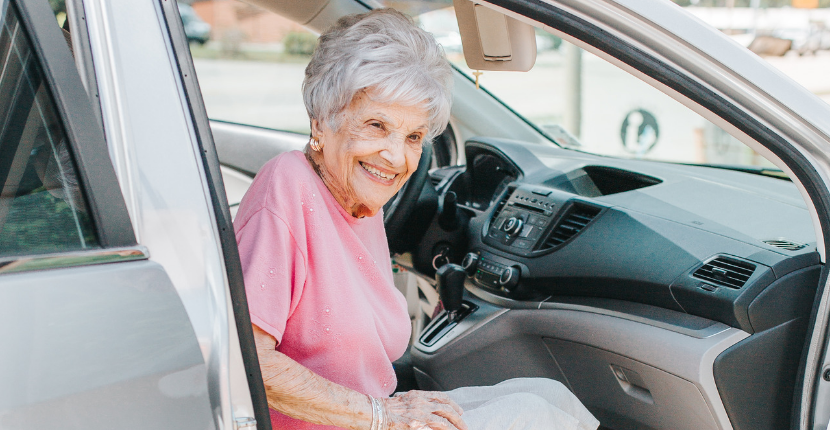At the age of 16, the ability to drive has traditionally become a rite of passage for many American teens.
And getting from one place to the next requires a person to be mobile in order to do so. But even a lifetime of safe driving practices can eventually change over time.
It might start out as missing a stop sign while heading to the grocery store. Backing out of the garage starts to result in a few small dents to the rear of the car. Running over barriers in the parking lot becomes a common occurrence when visiting the doctor’s office.
You’ve probably seen these things happen on a regular basis only to find yourself asking other family members, “How safe is it for mom or dad to be behind the wheel?”
Starting a conversation with an older loved one about their ability to drive is a difficult thing to do. Loss of mobility and independence can be a scary thought for the person who has always done things on their own. And if you’re wondering how to talk to an elderly parent about whether or not its still ok to drive, Freedom Home Care agency offers some solutions to help make the conversation easier and less emotional for both you and your senior.
Plan Ahead
Many times we wait until we HAVE to have address the fact that it’s no longer safe to drive. But when you sit down with mom or dad ahead of time and make them an active part of the conversation, not only are you giving them say in the decision-making process, but you’re also helping them maintain a bit of dignity and independence.
Consider Any Health Conditions
Serious physical and mental health conditions can impact one’s driving aptitude and judgement. Talk to your loved one’s doctor about whether their diagnosis could negatively affect their ability to operate a vehicle. Keep in mind, medications are also a cause for concern if they cause drowsiness, blurred vision or confusion when taken.
Address Changes
Some seniors maintain the ability to drive for many years, but then certain behaviors begin to create an unsafe environment for both passenger and driver. Maybe dad makes a right turn without looking or leaves his left blinker on. While these may seem like small things to him, they could impact the decisions of other drivers on the road as well.
Keep Insurance Rates Down
Reminding parents that safe driving is rewarded with lower insurance rates. For those older loved ones on a fixed income, a hike in rates could take a financial toll. Talk about ways they can maintain a good driving record by being more conscientious on the road.
Consult a Professional
Sometimes it takes an expert opinion to help influence the choices and decisions of our loved ones. State licensed and trained driving instructors can provide a driving skills evaluation or clinical driving assessment to determine if your loved one is need of extra training or should maybe forgo driving altogether.
If you’re looking into different therapy options, Freedom Home Care can help. Our senior care specialists can assist in helping you find your loved one appropriate therapy.




